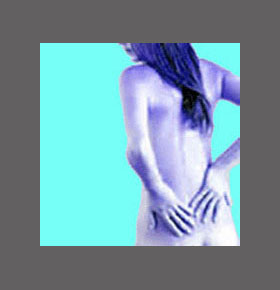
Incontinence from spinal stenosis can be an indicator of lumbar cauda equina syndrome, but may also exist due to central canal narrowing conditions in the upper regions of the spine, as well. When the central canal is markedly decreased in size, spinal cord or cauda equina compression can occur, affecting the neurological structures which facilitate proper control of the bladder and/or bowels. When this takes place, the patient is usually considered a surgical emergency, since without operative intervention, the damage to nerve structures may become permanent, enacting lasting incontinence for life in some unfortunate victims of severe spinal stenosis.
Of all symptoms possible to endure with a canal narrowing condition, incontinence is definitely one of the worst and most feared.
What is Incontinence from Spinal Stenosis?
Incontinence describes a condition in which the patient can not hold off the need to release their bladder or void their bowels. The patient will urinate and/or defecate without intent and will obviously be in a very bad situation.
The majority of cases of incontinence related to a spinal stenosis issue come on acutely, due to a known trauma, such as a car crash, serious fall or sporting injury. However, a slower onset and progressive variety of incontinence may start gradually with a bit of leaking or an occasional accident. These symptoms may also be the result of traumatic injury, but are more commonly related to known stenosis which continues to worsen in the cervical or lumbar spinal areas.
Incontinence is perhaps one of the most disruptive of all spinal symptoms and is unfortunately commonly associated with significant central stenosis cases.
Treatment for Incontinence
Once incontinence begins, surgery is almost always the recommendation for immediate treatment. If successful, the patient will hopefully regain full use of their bladder and/or bowels, although many patients continue to have other symptoms, such as neck or back pain, sciatica or other neurological effects.
Procedures used to treat stenosis-related incontinence will depend on the causative issue, with discectomy being most typical for herniations, laminectomy being most typical for arthritis and foraminotomy being most typical for incidences of pinched nerves in the neuroforaminal spaces.
In many scenarios, procedures are combined, such as a discectomy and laminectomy, while in other cases, spinal fusion is the end game therapy selected in the hopes of ending the stenosis once and for all.
Incontinence from Spinal Stenosis Help
It is crucial for any patient who experiences a loss of bowel or bladder functionality to seek professional medical intervention immediately. Waiting will not only make you suffer physical and emotional torture, but may also cause permanent nerve damage which can diminish your quality of life forever. Do not take chances.
For patients who have minor symptoms of leaking, or the inability to urinate or void, these may also be early warning signs of nerve dysfunction.
If you suspect you might have spinal stenosis or have a positive diagnosis of such and suddenly or gradually suffer any unusual urinary or fecal problems, be sure to consult your neurologist or a qualified emergency medical center ASAP.
Spinal Stenosis > Symptoms of Spinal Stenosis > Incontinence from Spinal Stenosis





